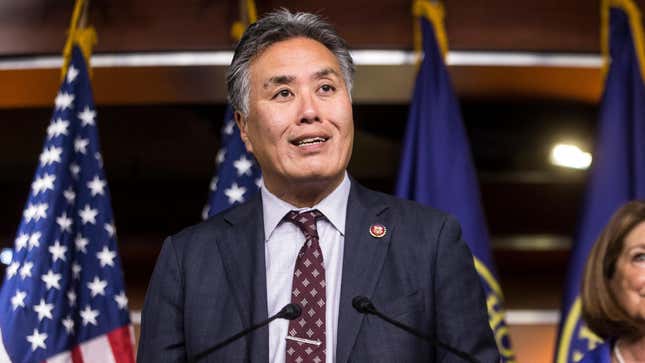
It turns out some Members of Congress despise the five-day workweek as much as the rest of us. This week, Rep. Mark Takano of California introduced groundbreaking legislation meant to make four-day workweeks the norm in the US, instead of the Monday-through-Friday grind full-time workers have learned to accept as inevitable.
“Many countries and businesses that have experimented with a four-day workweek found it to be an overwhelming success as productivity grew and wages increased,” said Takano in a statement about the proposed legislation. He went on to add that especially after a pandemic that left so many Americans unemployed and uncertain about their financial futures, embracing a shorter workweek would “allow more people to participate in the labor market at better wages.”
Takano came up with a clever way to turn the 5-day, 40-hour workweek into one that lasts 4 days—and 32 hours—instead. Specifically, his drafted legislation would lower the maximum hour threshold for overtime pay under the Fair Labor Standards Act (FLSA). For those unaware, the FLSA is a federal labor law passed back in the late 1930s that gives most workers across the country the right to a minimum wage, and access to “time-and-a-half” overtime pay when those workers are on the clock for more than 40 hours per week.
By lowering the threshold for what is and isn’t “overtime,” Takano’s proposal argues that more people would be able to access some of that sweet sweet overtime pay that’s currently available to those working more than 40 hours per week.
“I am introducing this legislation to reduce the standard workweek to 32 hours because—now more than ever—people continue to work longer hours while their pay remains stagnant,” Takano went on. “We cannot continue to accept this as our reality.”
The idea of a 32-hour workweek has been gaining steam elsewhere around the world. Back in 2019, John McDonnell—who was then a senior chancellor with the UK’s Labour Party—went on the record saying that a 32-hour workweek would be possible within the coming decade. More recently, Spain poured 50 million euros (roughly $60 million USD), into a nationwide pilot for the four-day workweek. Over the next three years, the Spanish government will be funding companies that need a hand making the switch to the 32-hour model; and if it takes off, the country would be the first to implement the four-day standard on the national level. And that’s aside from the similar (already successful trials) we’ve seen in Iceland, Japan, and New Zealand.
Of course, California’s proposed legislation is going to face an uphill battle before it makes its way into Senate for approval—it still needs to be reviewed by a committee and the House of Representatives—all regular parts of the general churn of turning a bill into law. And undoubtedly, there’s going to be people who take ire with Takano’s choice to focus on FLSA, which doesn’t apply to some workers, like private contractors or those in the gig economy. But at the very least, a bill like this could spur all employers to reconsider their policy around the weekend.